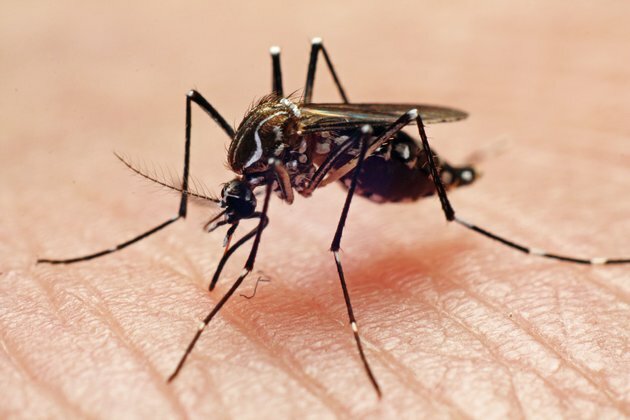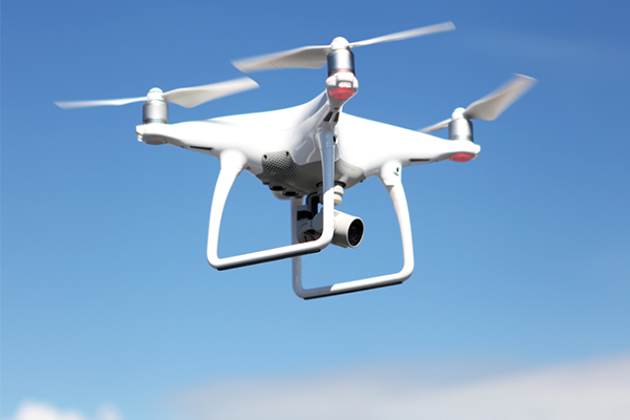Three things you should know about mosquitoes
The Conversation
17 Aug 2021, 20:12 GMT+10

For thousands of years malaria was a mysterious illness affecting people across the globe. Even the name of the disease, 'malaria', derived from two Italian words meaning 'bad air', highlights the confusion around the transmission of this disease. It was only following the discovery of malaria parasites in the gut of Anopheles mosquitoes in India by Sir Ronald Ross on 20 August 1897 that a clearer picture of the role of the mosquito in the malaria transmission cycle emerged.
Ross was awarded a Nobel prize for this discovery, and since 1930 World Mosquito Day has been observed on 20 August to commemorate this important finding and highlight the role of mosquitoes in the health and well-being of humans.
Mosquitoes are among the deadliest animals in the world. Half of the deaths attributed to these insects are associated with malaria. But mosquitoes are carriers of a number of other parasites, viruses and nematodes (roundworms) that threaten the health of humans. It's surprising, then, that the general public tends to be ill-informed about mosquitoes in general.
There are still many things scientists don't understand either. For example, how do mosquitoes find us? What do they like about us? And why are some mosquitoes just a biting pest while others are deadly? In addition, new mosquito species are still being described and discovered. Species previously not thought of as vectors are now being implicated in the transmission of malaria.
As malaria research scientists we have chosen some interesting facts about mosquitoes to share with you. We also highlight what they mean for public health.
1. Not all mosquitoes are created equal
Mosquitoes are generally thought of as the noisy nuisance that pesters you at night. But they differ greatly in their biology and distribution. There are around 3,500 mosquito species belonging to five genera.
The whiny mosquito that instantly comes to mind is most likely a member of the Culex genus, which is active at night. These mosquitoes lay their eggs as egg rafts in a range of different water bodies (breeding sites). They are associated with diseases like West Nile virus and Japanese encephalitis in some regions, but not in South Africa.
In contrast, Aedes mosquitoes are mostly encountered during the day. These mosquitoes are black with distinctive white or silvery markings and breed in containers such as tyres and tree holes. They lay single eggs on the damp sides of a water body rather than directly onto water. These mosquitoes are capable of transmitting a range of deadly viruses including dengue, yellow fever and Zika.
Unlike Aedes and Culex mosquitoes, Anopheles mosquitoes make only a soft buzzing sound and hence are often referred to as the "silent killers". Of the approximately 460 Anopheles species, at least 70 have been implicated in malaria transmission. Adult Anopheles mosquitoes are brown or black with dappled wings and are generally most active between dusk and dawn. They also have a very distinctive resting posture, with their abdomens pointing away from a surface at an angle of about 45 degrees as opposed to resting parallel to the surface they are resting on. Female anopheline mosquitoes also lay single eggs on the surface of water bodies and hatched larvae lie parallel to the surface of the water.
2. Some mosquitoes do not bite at all
Female anopheline mosquitoes interact with you when in search of a blood meal. They use the proteins in blood to assist with egg production. In her search for essential proteins, the female malaria mosquito bites - she doesn't sting. Male malaria mosquitoes are harmless and play a critical role in the pollination of plants.
Toxorhynchites mosquitoes, also known as elephant mosquitoes, do not have biting mouth parts. Their larvae are, however, actively carnivorous and eat other mosquito larvae. In certain conditions they have been used for biological control.
It is also worth noting some mosquito look-alikes, notably crane flies. These large flies cannot bite, but are commonly mistaken for gigantic mosquitoes.
3. Mosquitoes transmit only certain diseases
Despite being associated with a wide range of diseases, mosquitoes are not capable of transmitting viruses such as HIV, Ebola or thenovel coronavirus.
How to protect yourself
Mosquito-borne diseases are often preventable. But they are unfortunately associated with high levels of poverty and weak health systems. This makes controlling and preventing these diseases very challenging.
It is therefore very important to protect yourself from mosquito bites when in an area with a high risk of exposure to mosquito-borne diseases. Consider covering exposed areas of skin with repellents and sleeping under a mosquito net.
There are drugs which offer protection for travellers who haven't been exposed to malaria before (which is most of South African population) and, despite urban legend, they do not mask symptoms of the disease. If you develop a fever after travelling to a malaria endemic area, you should tell your healthcare provider where you have been.
Vaccines for yellow fever and Japanese encephalitis are available and several more are in development. There has been promising malaria vaccine news but meanwhile it's wise to take precautions.
Authors: ShУТМnУТЉ Oliver - medical scientist , National Institute for Communicable Diseases | Jaishree Raman - Laboratory for Antimalarial Resistance Monitoring and Malaria Operational Research, National Institute for Communicable Diseases 
 Share
Share
 Tweet
Tweet
 Share
Share
 Flip
Flip
 Email
Email
Watch latest videos
Subscribe and Follow
Get a daily dose of Japan Herald news through our daily email, its complimentary and keeps you fully up to date with world and business news as well.
News RELEASES
Publish news of your business, community or sports group, personnel appointments, major event and more by submitting a news release to Japan Herald.
More InformationAsia Pacific
SectionUS seeks global support to block China’s access to American chips
WASHINGTON, D.C.: Commerce Secretary Howard Lutnick said the Trump administration is asking companies and foreign governments to help...
Trump seeks delay in US Steel-Nippon legal fight, talks ongoing
WASHINGTON, D.C.: The Trump administration is seeking a delay in the legal battle between U.S. Steel and Nippon Steel over their blocked...
FAA to propose new rules for expanding drone deliveries
SEATTLE/WASHINGTON D.C.: U.S. Transportation Secretary Sean Duffy said last week that the Federal Aviation Administration (FAA) is...
Taiwan Coast Guard seizes suspected Chinese vessel in restricted waters off northwest Taiwan
Taipei [Taiwan], March 24 (ANI): Taiwan's Coast Guard seized an unmarked vessel suspected to be a Chinese in the restricted waters...
AI-powered rubber-tapping robots designed to alleviate labor shortage
This photo taken on March 4, 2025 shows a mobile rubber-tapping robot in Haikou, south China's Hainan Province. (Xinhua/Yang Guanyu)HAIKOU,...
(SP)CHINA-HANGZHOU-FOOTBALL-FIFA WORLD CUP QUALIFIER-PRESS CONFERENCE-TRAINING(CN)
(250324) -- HANGZHOU, March 24, 2025 (Xinhua) -- Goalkeeper Wang Dalei (C) of China trains ahead of the 2026 FIFA World Cup Asian Qualifier...
Business
SectionBoston Celtics sold for $6.1 billion to private equity mogul Chisholm
BOSTON, Massachusetts: Private equity investor William Chisholm has agreed to buy the Boston Celtics in a record-breaking deal worth...
US mortgage rates rise for second week, adding pressure on buyers
WASHINGTON, D.C.: The cost of borrowing for a home in the U.S. ticked up again this week, marking the second straight increase as homebuyers...
Apple TV+ bleeds $1 billion annually in costly streaming push
CUPERTINO, CALIFORNIA: Apple's ambitious foray into streaming is proving costly, with the company reportedly losing over US$1 billion...
Gold rally gains momentum as Citi lifts target to $3,200
NEW YORK CITY, New York: Gold's record-breaking rally is expected to continue, with Citi Research increasing its three-month price...
Data center safety system nearly sparked US power crisis
BOSTON, Massachusetts: A routine safety mechanism at data centers nearly triggered a regional power crisis last summer, highlighting...
Air France unveils luxury first-class suite to lure elite travelers
PARIS, France: Air France is making a bold bet on luxury travel with the launch of an upgraded first-class suite, aiming to attract...













